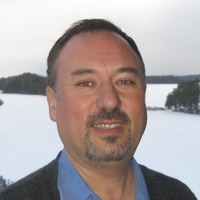Michael Lukin
The Hebrew University of Jerusalem, Jewish Music Research Center, Department Member
Research Interests:
This conference brings together the latest scholarship on the broad themes of transnationalism, intersectionality, and cross-border exchanges in Jewish history from the early modern period to the present.
Research Interests:
Research Interests: Yiddish Literature, Historical Ethnomusicology, Jewish History, Jewish Music, Folkloristics, and 5 moreEthnography (Jewish Folklore, Oral Tradition and the Problem of Identity in Diaspora), Jewish Folklore and Ethnography, Yiddish Folklore, Folk Medicine, S. Ansky The Dybbuk, Folk songs, and The Dibbuk by S. Ansky
Programme Committee: Ulrich Morgenstern (Co-Chair) Thomas Nußbaumer (Co-Chair), Jana Ambrózová. Folk music, folklore, and the anthropology of music are discursive fields, deeply rooted in European thought from the Enlightenment period... more
Programme Committee: Ulrich Morgenstern (Co-Chair) Thomas Nußbaumer (Co-Chair), Jana Ambrózová.
Folk music, folklore, and the anthropology of music are discursive fields, deeply rooted in European thought from the Enlightenment period onwards. Up to the first decades of the 20th century, leading intellectuals of their countries-polymaths, philosophers, historians, writers, philologists, composers and musicologists-devoted themselves to, and were inspired by, continuous observations of the expressive practices of those who once were called the common people or the Volk. Their intellectual involvement with traditional music engendered powerful theories and research methods that could later be applied to the study not only of rural or illiterate communities but to a broad field of social settings. Due to language barriers as well as to widespread stereotypes of folk music and folklore discourses as genuinely and predominantly ideological, romanticist and nationalist agendas, the early intellectual history of folk music research, comparative musicology and ethnomusicology raises many unanswered questions. This concerns intellectuals' interest in European folk music as well as in non-European music. The focus of the symposium is the history of theory and method in the fields outlined above before they turned into an international paradigm under the label of ethnomusicology in the mid-20th century. 27 scholars from 14 countries and from different disciplines will discuss the following topics: • The history of ideas and the study of traditional expressive cultures • Research motivations, theories and methods from a comparative perspective • Scholarship and non-academic discourses: alliances and conflicts
Folk music, folklore, and the anthropology of music are discursive fields, deeply rooted in European thought from the Enlightenment period onwards. Up to the first decades of the 20th century, leading intellectuals of their countries-polymaths, philosophers, historians, writers, philologists, composers and musicologists-devoted themselves to, and were inspired by, continuous observations of the expressive practices of those who once were called the common people or the Volk. Their intellectual involvement with traditional music engendered powerful theories and research methods that could later be applied to the study not only of rural or illiterate communities but to a broad field of social settings. Due to language barriers as well as to widespread stereotypes of folk music and folklore discourses as genuinely and predominantly ideological, romanticist and nationalist agendas, the early intellectual history of folk music research, comparative musicology and ethnomusicology raises many unanswered questions. This concerns intellectuals' interest in European folk music as well as in non-European music. The focus of the symposium is the history of theory and method in the fields outlined above before they turned into an international paradigm under the label of ethnomusicology in the mid-20th century. 27 scholars from 14 countries and from different disciplines will discuss the following topics: • The history of ideas and the study of traditional expressive cultures • Research motivations, theories and methods from a comparative perspective • Scholarship and non-academic discourses: alliances and conflicts
Research Interests:
This Seminar will focus on Ashkenazic, Italian, Jewish and Western Sephardic musical expressions in Europe during the early modern period (excluding European Jewish communities under Ottoman rule). Special emphasis will be given to the... more
This Seminar will focus on Ashkenazic, Italian, Jewish and Western Sephardic musical expressions in Europe during the early modern period (excluding European Jewish communities under Ottoman rule). Special emphasis will be given to the connection of liturgical, semi- liturgical and secular spheres within both composition and performance practice – hence the title “Between Sacred and Profane”.
Project Leader: Diana Matut (Heidelberg/Halle-Wittenburg)
Project Leader: Diana Matut (Heidelberg/Halle-Wittenburg)
